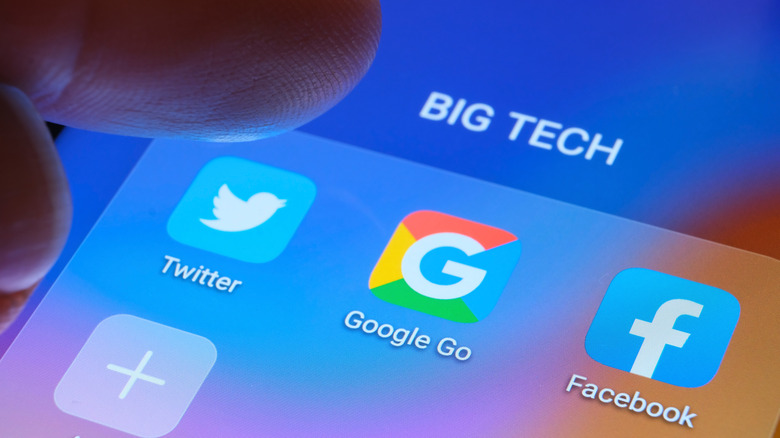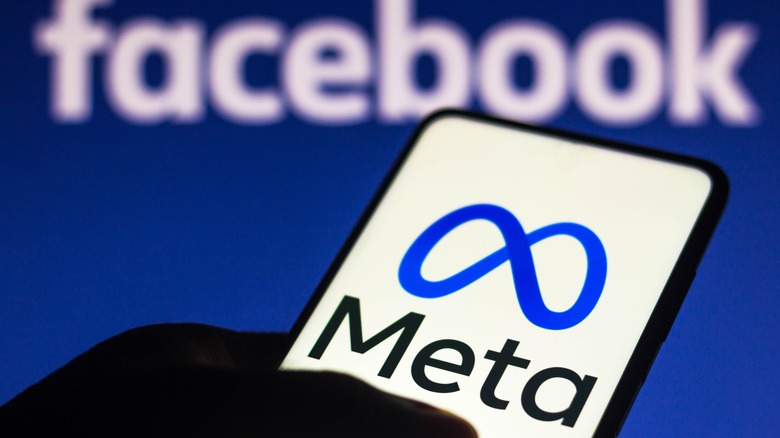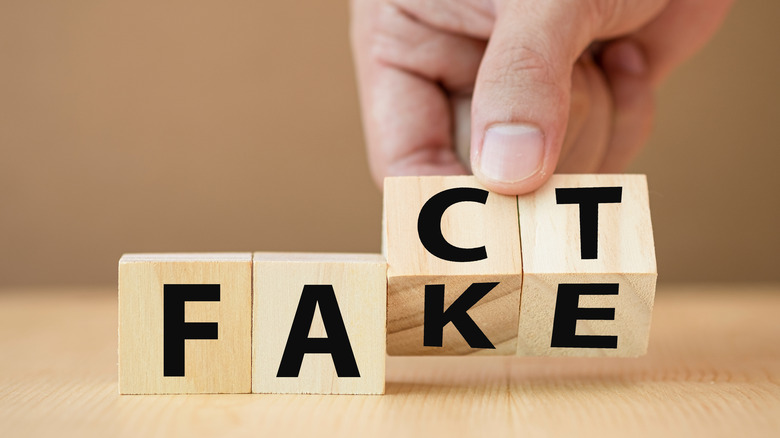New Documents Prove DHS Involvement In Facebook And Twitter Censorship
In April 2022, the U.S. Department of Homeland Security (DHS) announced what it called the Disinformation Governance Board (DGB), something it had described at the time as an advisory board intended to combat the trio of misinformation, disinformation, and the lesser-known variant malinformation under the premise of protecting national security. The advisory board was quickly criticized (via NYT), leading to a pause and review of the plan within weeks, and the official termination of the DGB in August 2022.
According to the update on the matter published on August 24, the DHS made the decision to "terminate" the advisory board based on a recommendation from the Homeland Security Advisory Council. However, in a statement provided at the time, the DHS said, in part, that it would "continue to address threat streams that undermine the security of our country consistent with the law, while upholding the privacy, civil rights, and civil liberties of the American people and promoting transparency in our work."
It seems the statement provided little more than lip service to the public, at least when it comes to the DHS offering the public transparency about its efforts. That's according to a new report from The Intercept, which claims that not only has the DHS been taking steps to scrub what it considers threatening content, but that it has also been pressuring major social media platforms and tech companies and plans to expand its censorship efforts.
Leak claims Facebook offered the DHS a special portal
According to The Intercept, its report is based on a variety of sources, including DHS "memos, emails, and documents" spanning years — some that were acquired via a lawsuit, some that are public documents, and — perhaps crucially — some that were leaked. The collection of materials is said to present a largely hidden effort to counter the deliberate and unintentional spreading of false info, as well as the sharing of facts in a way the DHS considers malinformation, which is content supposedly shared "with harmful intent" and likely without context.
The mission is said to expand far beyond what one may consider a good faith effort to help protect the public from manipulation from bad actors, however. Among other things, Lee Fang, an investigative journalist with The Intercept, claims that "obvious parody accounts" were victims of these censorship efforts, as well as content that challenged the U.S. government's pandemic response. Of particular note is an alleged portal created by Facebook that is said to grant the DHS and unspecified "government partners" special access to fast-tracking disinformation requests.
Facebook and Twitter created special portals for the government to rapidly request takedowns of content. The portals, along with NGO partners used to censor a wide range of content, including obvious parody accounts and content disagreeing w gov pandemic policy. pic.twitter.com/Jth0WUfXAI
— Lee Fang (@lhfang) October 31, 2022
The effort isn't just limited to Facebook, however, the report claims. Among the materials were notes showing that an FBI official had advised Twitter and JPMorgan Chase "senior executives" of the risks of so-called "subversive information" shared on social media, presenting it specifically as a threat against "support for the U.S. government." The report notes that the DHS's efforts allegedly extend beyond simply addressing and curbing dis- and misinformation from foreign countries intended to destabilize society and instead tread into the subjective and political, with the government ultimately "seeking to become arbiters of what constitutes false or dangerous information on inherently political topics."
The DHS will expand its efforts in coming years
The program, assuming it exists as presented, sounds concerning as-is, but it may only be the start. The Intercept alleges in its report that the Department of Homeland Security plans to expand the scope of its attempted censorship activities, adding in a variety of topics that include everything from "racial justice" to perspectives on the U.S. support for Ukraine, how the government handled the Afghanistan withdrawal, and how the COVID-19 pandemic may have originated.
The report goes on to point out some types of information the U.S. government has "lied about" and otherwise downplayed — the same kind of information it may be actively (or actively planning to) suppress from the public. One particularly hot-button topic is the National Institutes of Health (NIH) funding of coronavirus research at the Wuhan Institute of Virology in China, which has been the foundation of a number of conspiracy theories related to the pandemic's origins.
Among other things, a number of major tech companies are said to have participated in monthly meetings with the Cybersecurity and Infrastructure Security Agency (CISA) and the FBI, among other government entities, under a wider initiative over dealing with pre-2020 election misinformation. These meetings allegedly included participants like Verizon Media, Twitter, Facebook, Wikipedia, Discord, Reddit, Microsoft, and LinkedIn. At this time, however, the full scope of the government's efforts and ability to police speech on the internet is unclear, as well as how successful it has been in suppressing certain information and conversations thus far.


